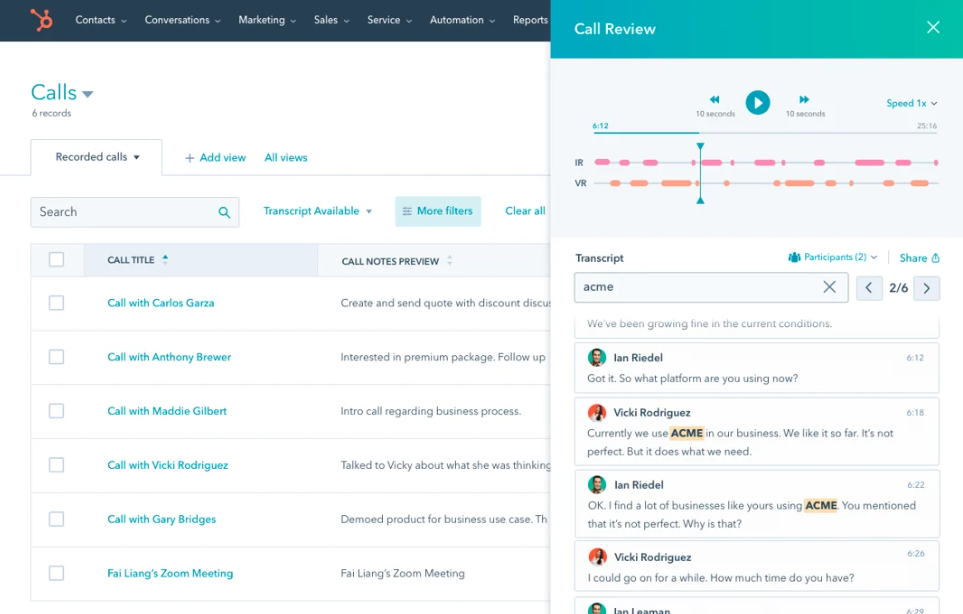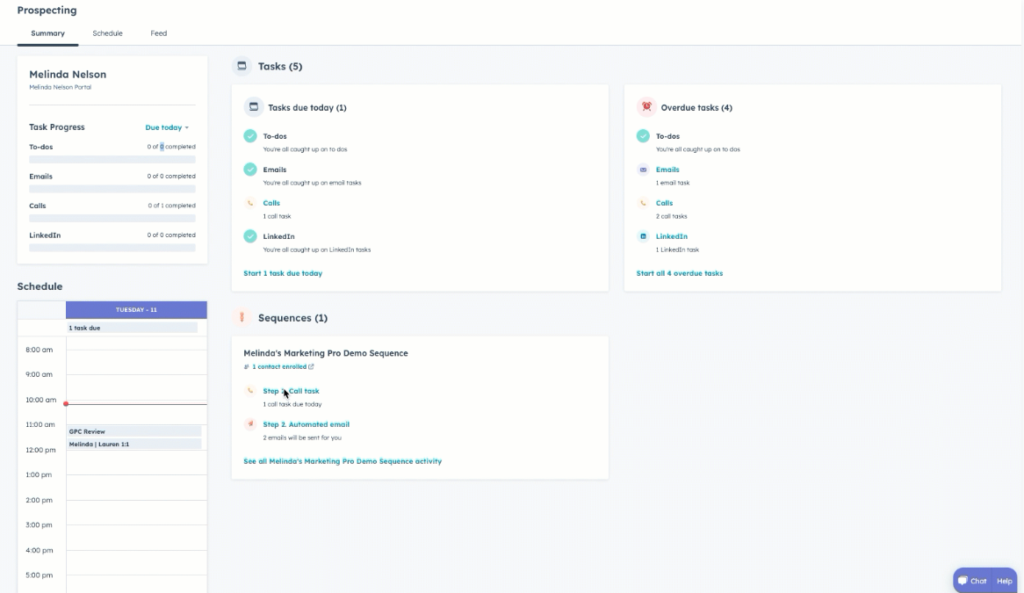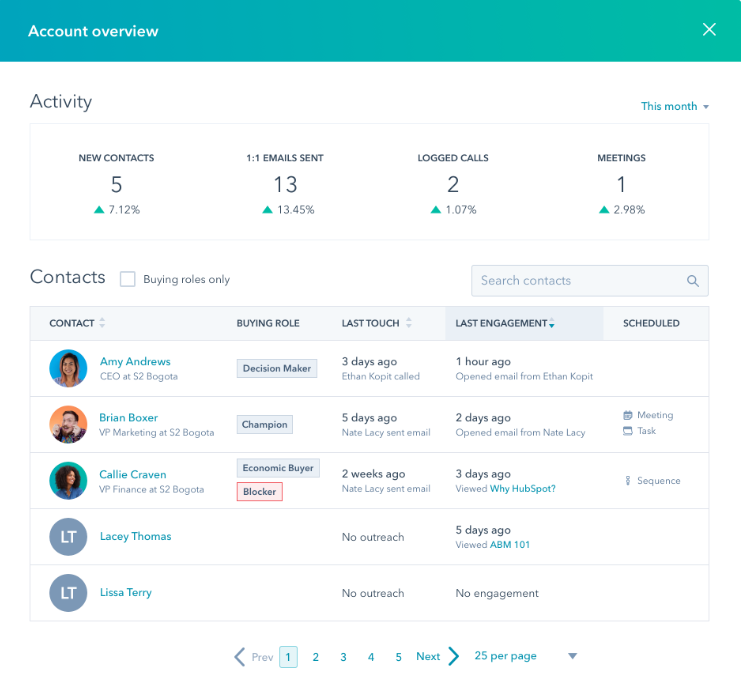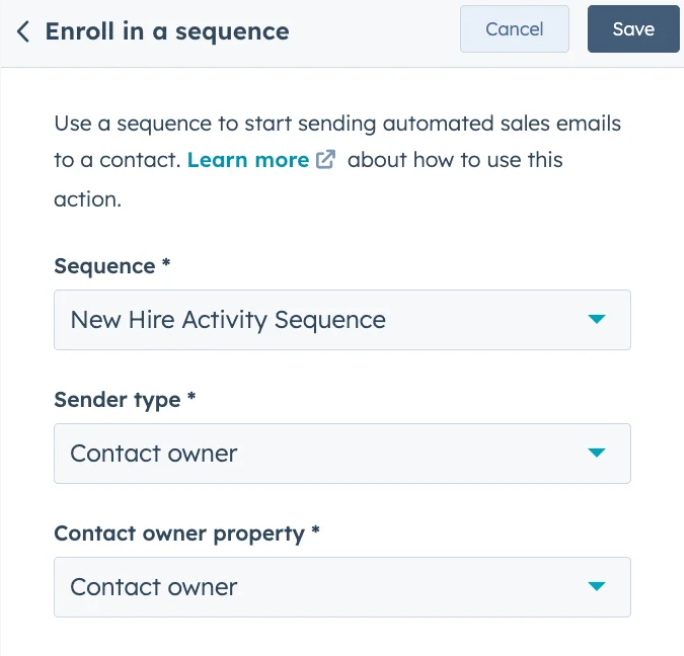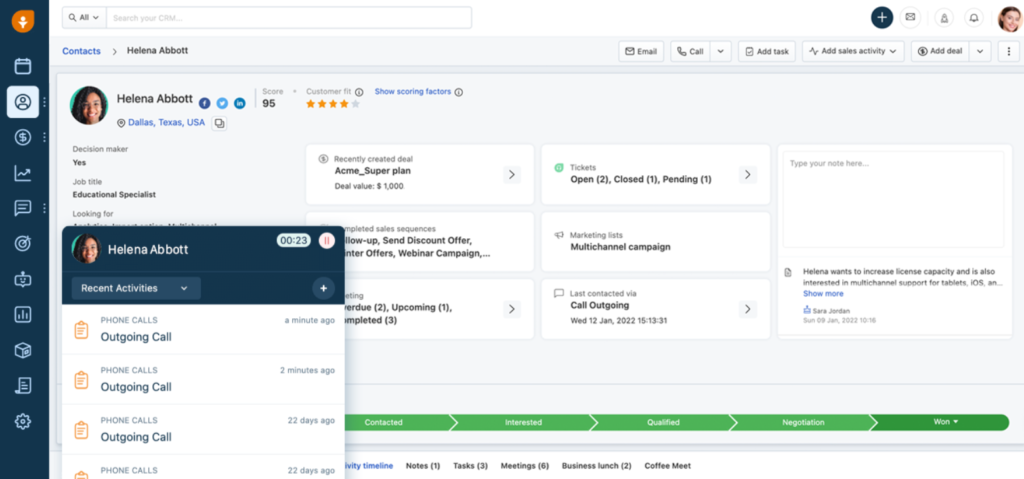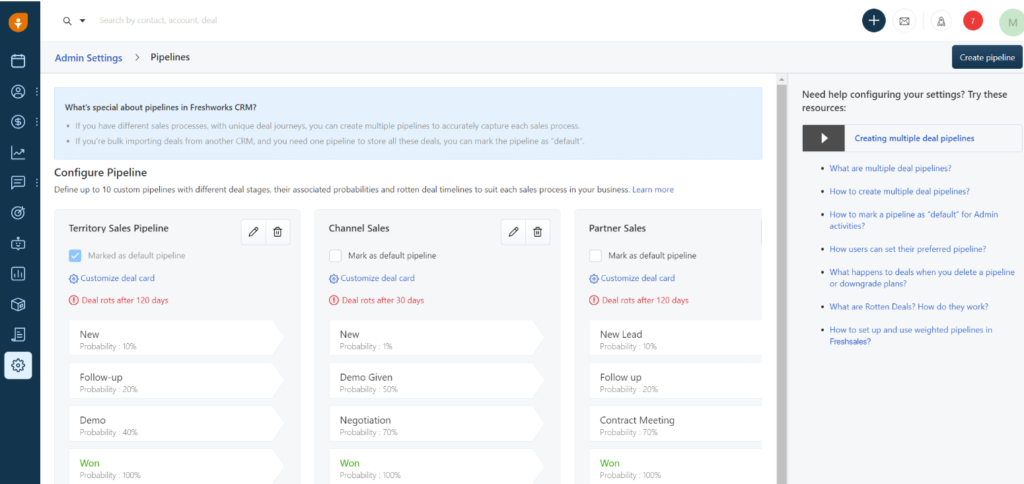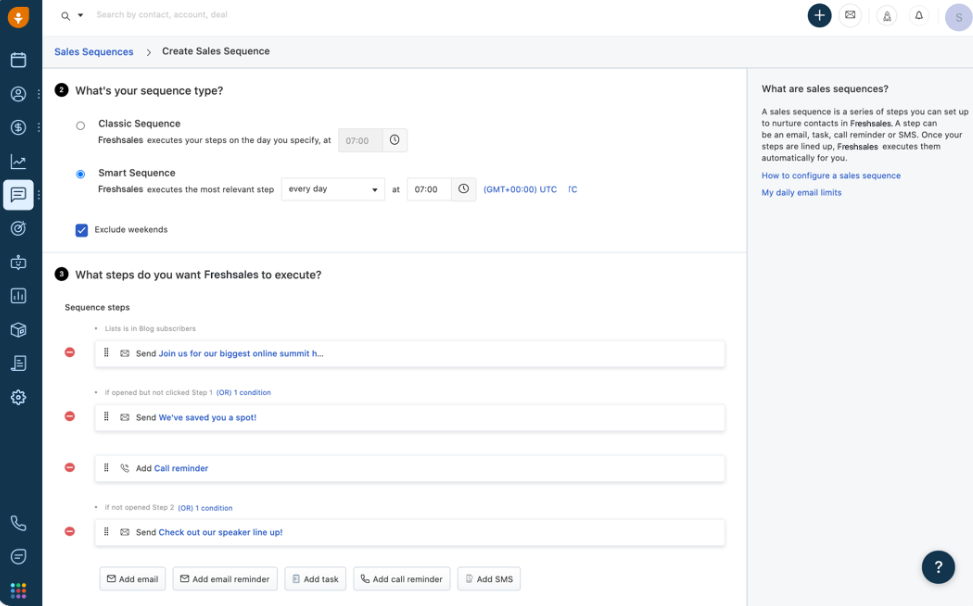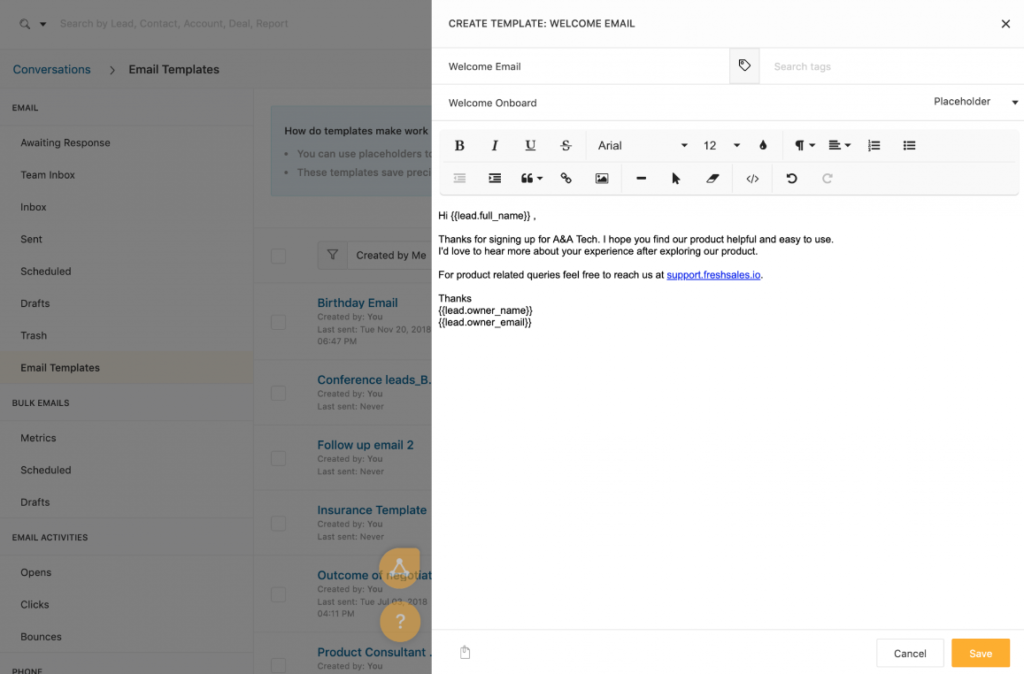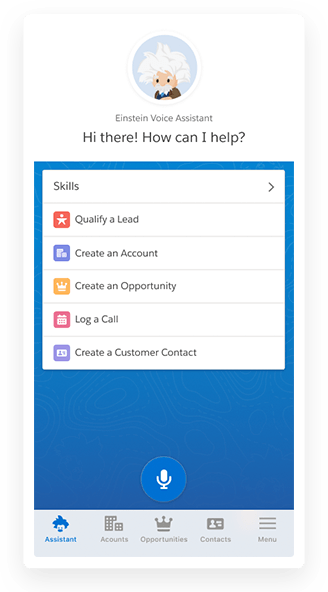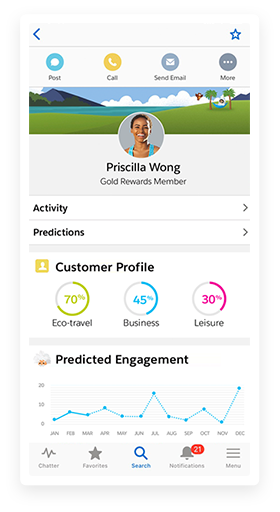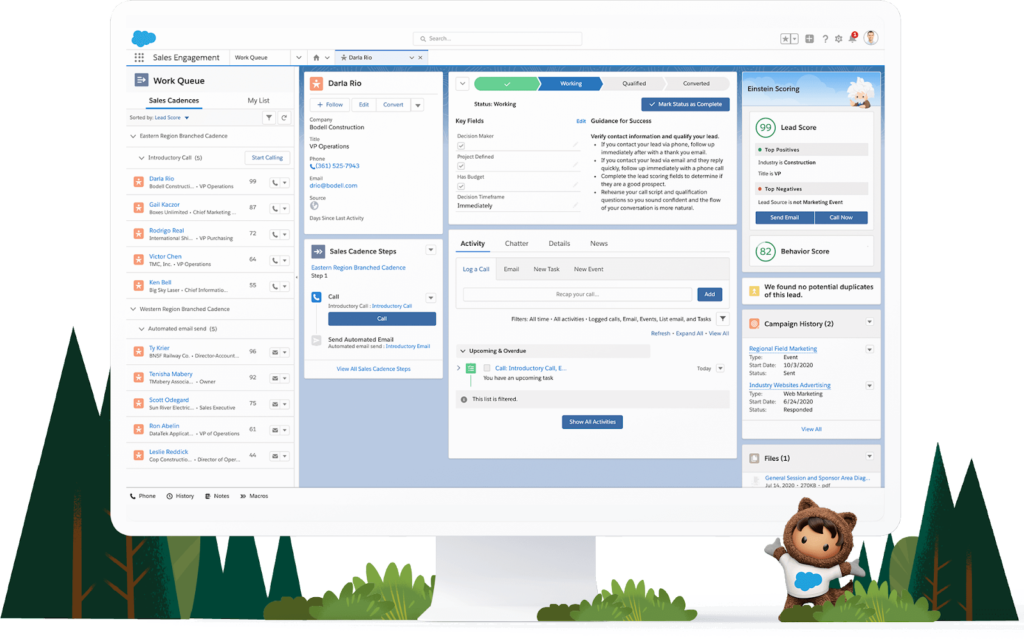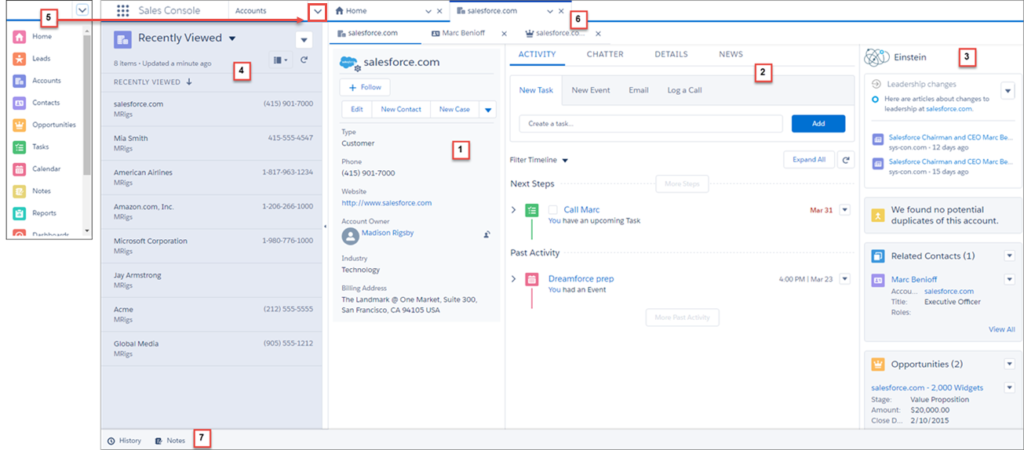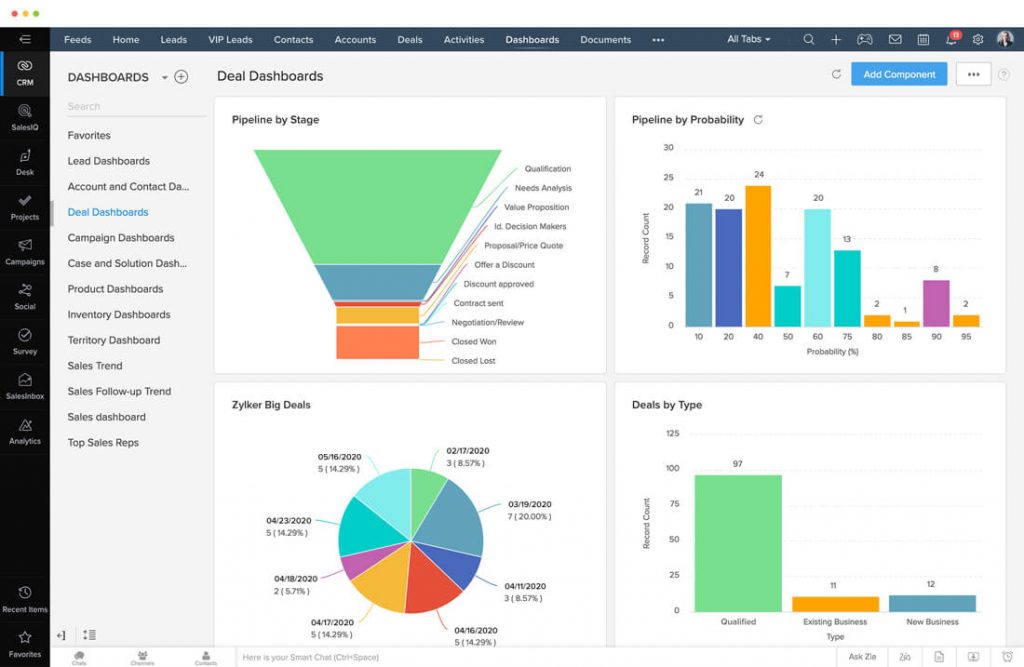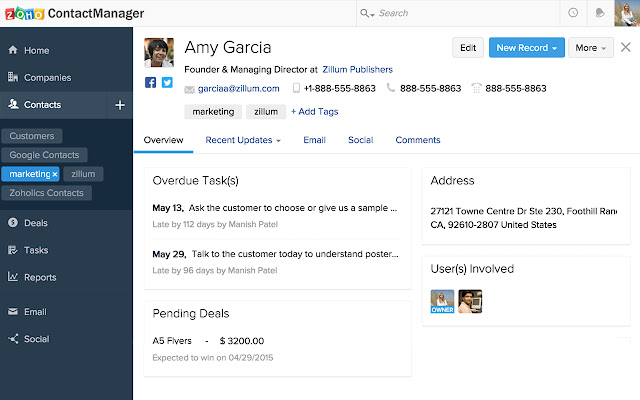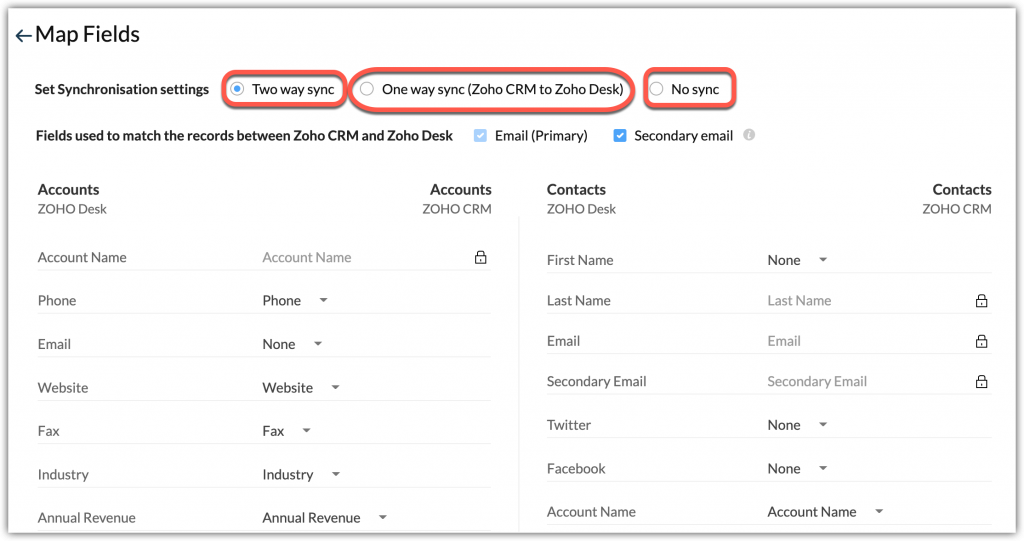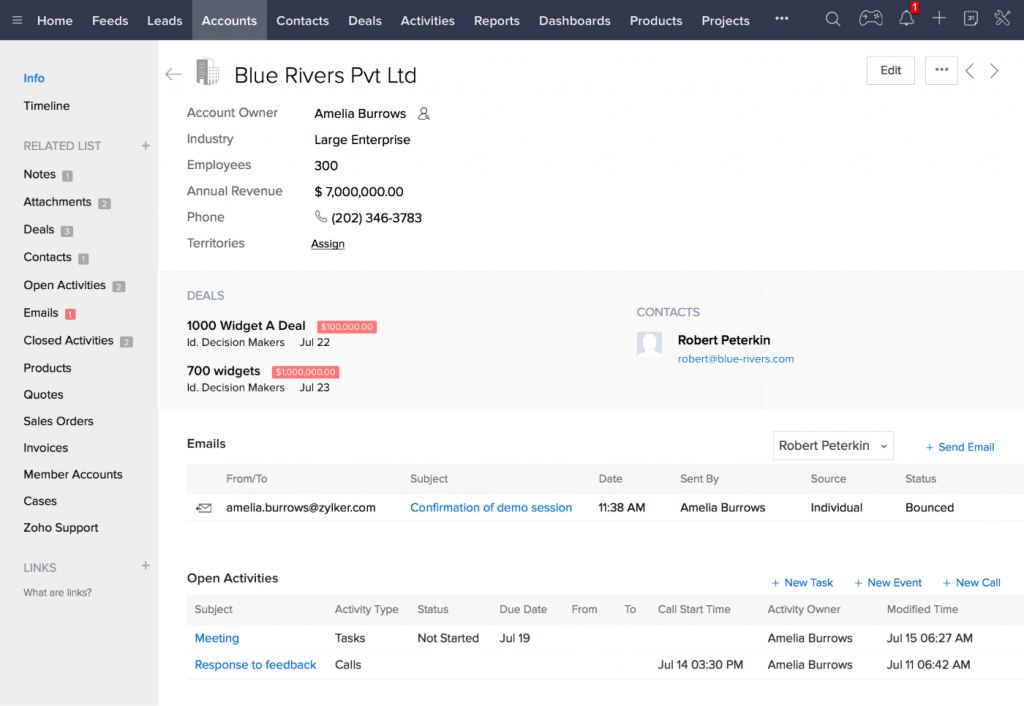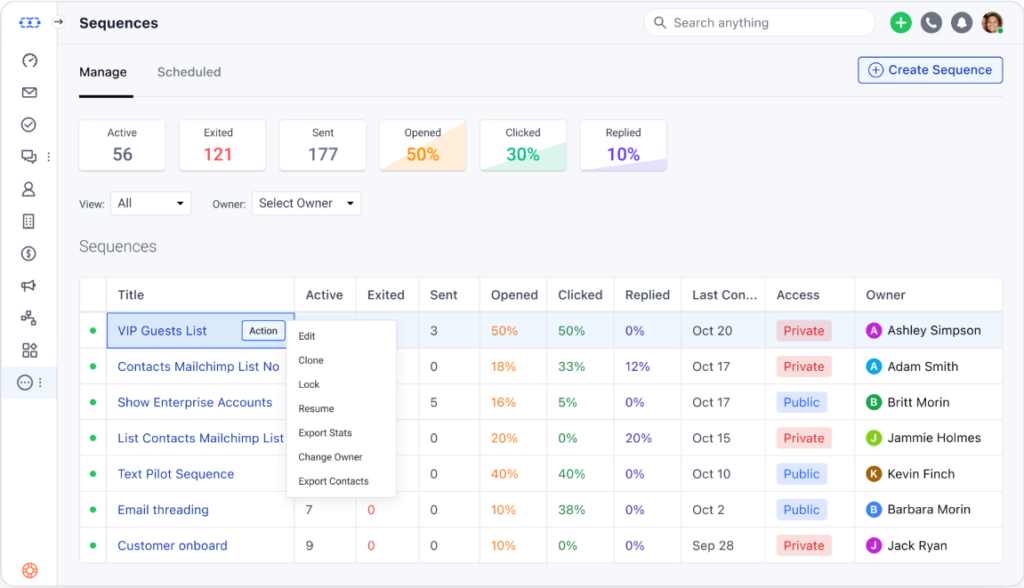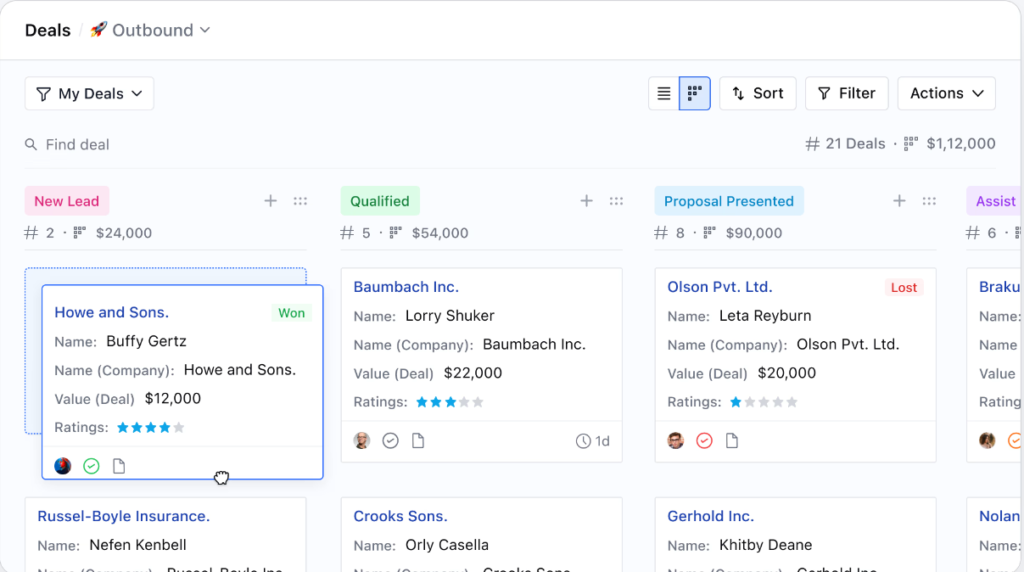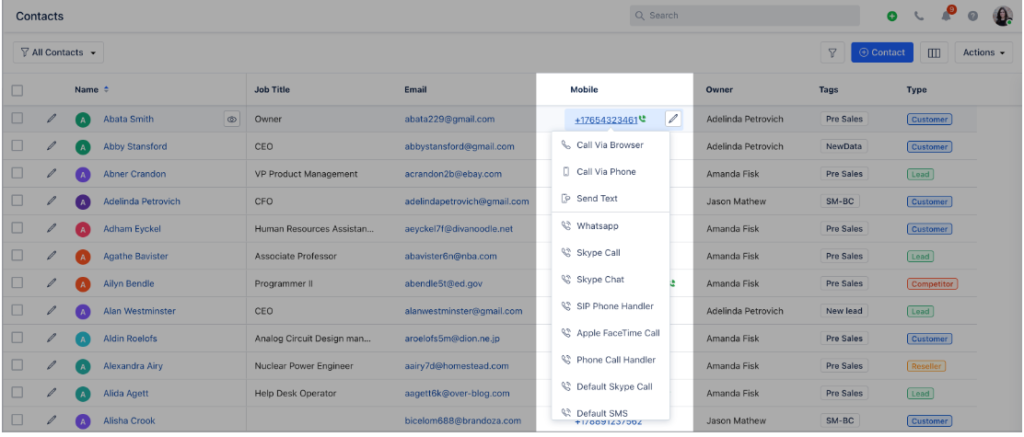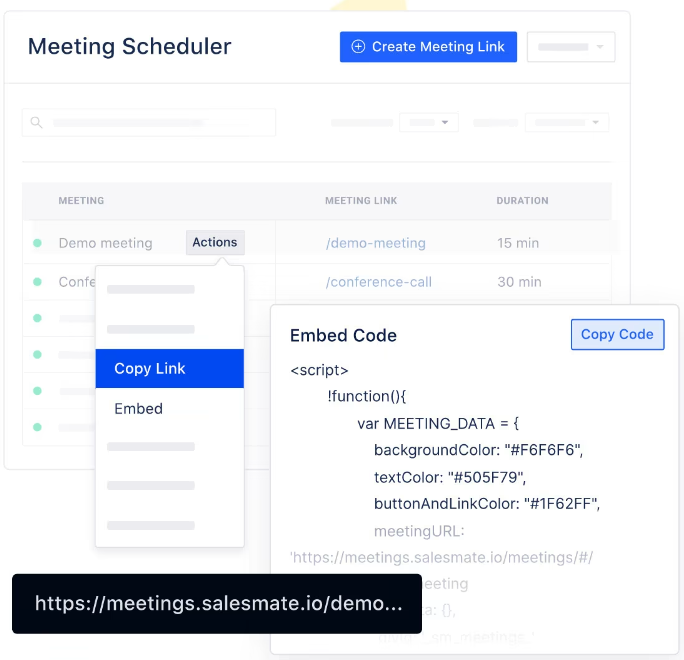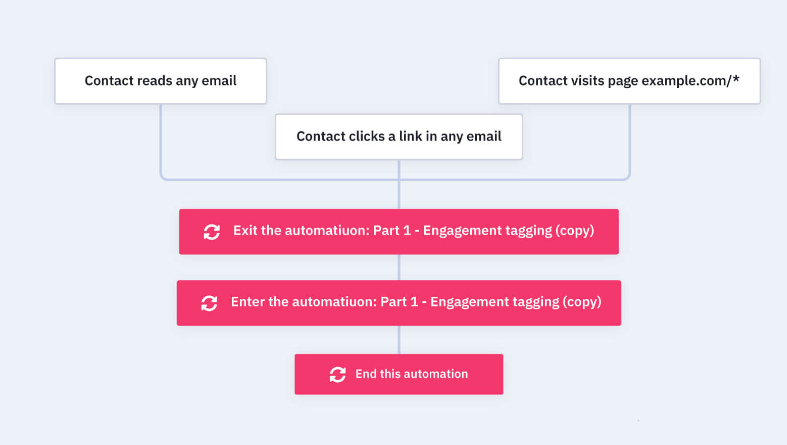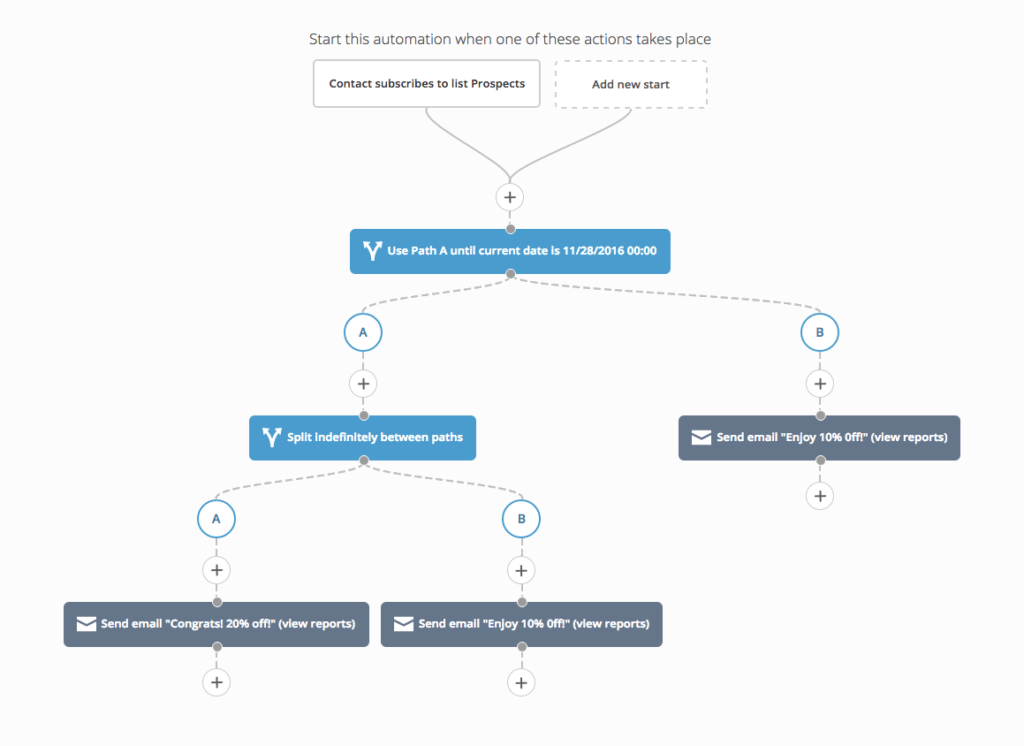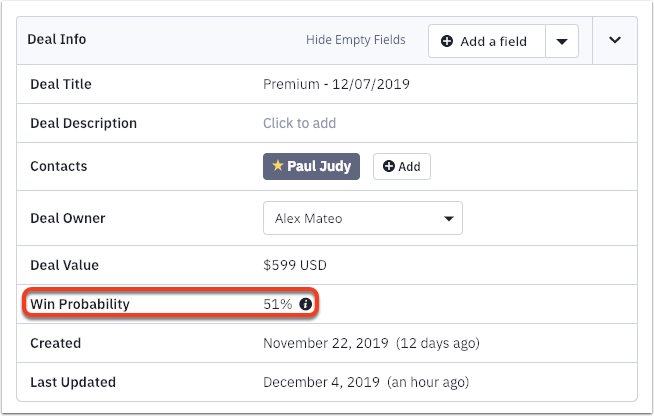Sales engagement software gathers and processes data on all sales rep and buyer interactions across multiple channels. Its omnichannel engagement, automation, artificial intelligence, and other core capabilities help sales teams improve the buyer’s journey. This sales interaction system also optimizes your selling content and overall sales process, helping drive conversion and build a strong rep-buyer relationship.
We have compiled a list to help you attain your sales engagement goals. Check out the best sales engagement software solutions in 2024 below.
Looking for even more sales software solutions? Check out our Sales Software Buyer’s Guide.
 |
 |
 |
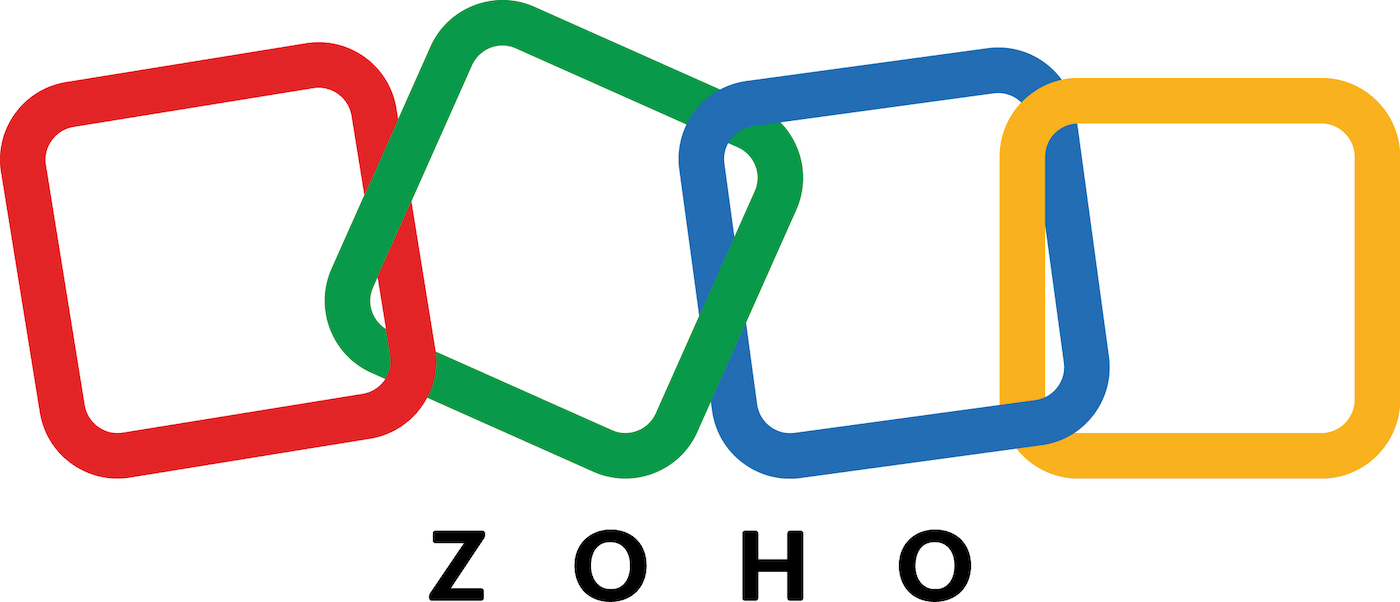 |
 |
 |
|
| Best for | Sales engagement automation | Multi-channel sales engagement | AI capabilities | Sales enablement | Sales cadence management | Personalized marketing |
| Star Rating | 4.83/5 | 4.70/5 | 4.59/5 | 4.51/5 | 4.50/5 | 4.42/5 |
| Key Features | Conversation intelligence; Conversation routing; Advanced sales sequences; Account-based marketing; (ABM) tools and automation; AI sales forecasting; Prospecting workspace | Built-in chat, email, and phone; Customizable email templates; Custom fields and sales activities; Sales sequences; Multiple sales pipeline | Built-in AI; Lightning Sales Console; Email marketing campaign mgmt.; Salesforce meetings; Salesforce mobile app; Advanced pipeline mgmt. | Documents library; Configure, price, quote (CPQ); SalesInbox; Zoho meeting integration; Wizards | Meeting scheduler; Online web form builder; Built-in communication tools; Sales sequences; Custom modules | Sales engagement automation and one-to-one email; Personalized chat and email support; Sentiment analysis; Split automation; Win probability; AI; Email deliverability tools |
| Learn More | Visit HubSpot | Visit Freshsales | Visit Salesforce | Visit Zoho | Visit Salesmate | Visit ActiveCampaign |
Best sales engagement software
HubSpot Sales Hub: Best for sales engagement automation
Pros
Cons

Our Rating: 4.83/5
HubSpot Sales Hub is a robust sales engagement tool that automatically logs calls, emails, social media interactions, and other sales engagement activities. This customer relationship management (CRM) system also allows sales reps to obtain a 360-degree view of the sales pipeline with its artificial AI sales forecasting and prospecting workspace.
One of the most notable core features of HubSpot is conversation intelligence. This helps sales managers understand how reps are performing on customer calls so they can provide effective coaching with data-driven insights. Moreover, conversation intelligence can be integrated into HubSpot Smart CRM’s calling service to further bolster sales engagement.
Freshsales: Best for multichannel sales engagement
Pros
Cons

Our Rating: 4.7/5
Freshsales is a multichannel tool for sales engagement equipped with phone, email, and chat. This sales engagement platform allows reps to create email templates, like follow-up emails, to engage with prospects quickly. Sales managers can purchase local and toll-free numbers and assign them to sales reps and track the number of outgoing calls they make at a particular time.
This CRM optimizes the sales process by giving salespeople valuable insights on deals through its many tools for managing multiple sales pipelines. Another advantage of using Freshsales is its customization options. Sales reps can enhance personalized emails with placeholders, tags, filters, sharing, and bulk emailing capabilities for outbound campaigns and other sales engagement activities.
Salesforce Sales Cloud: Best for AI capabilities
Pros
Cons

Our Rating: 4.59/5
Salesforce is a renowned leader in sales software, expanding its solutions to marketing, commerce, customer service, data cloud, and AI. Specifically, Salesforce Sales Cloud has a built-in AI that eliminates manual logging and automates relationship discovery. When writing an email, for example, the AI provides sales agents with critical context, such as a user’s pain points gathered from their online behavior and responses to follow-up correspondence—helping better engage with sales leads.
The AI capabilities of this sales engagement platform also include conversation insights, automatically logging, transcribing, and extracting action items like prospect calls. Moreover, the system provides all the selling tools reps need to prospect leads, manage relationships, and close deals in one place.
Zoho CRM: Best for sales enablement
Pros
Cons
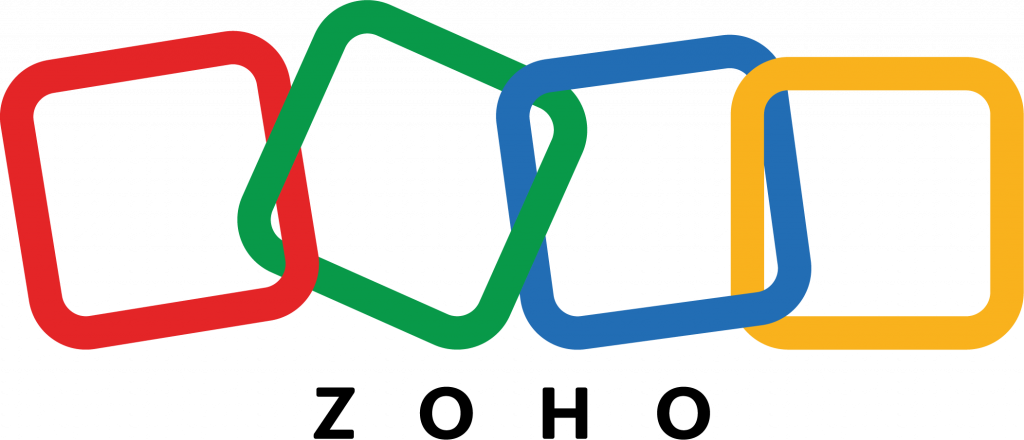
Our Rating: 4.51/5
Zoho CRM empowers sales teams with sales enablement tools. Sales teams can create a document library of sales scripts, comparison sheets, product feature lists, and other essential documents for sales engagement and other sales activities. Zoho SalesIQ, another Zoho product, can be connected to Zoho CRM to create a powerful sales enablement engine with its lead generation, website visitor tracking, visitor analytics, and live chat solution rolled into a centralized platform.
Integrating with Zoho Meeting allows sales teams to manage virtual discussions, launch web conferences, access email templates, and share links to recorded videos for sales engagement. With all these features, we can say that Zoho CRM is one of the top customer engagement software systems in the market. It’s a customer engagement, sales engagement, and sales enablement platform in one.
Salesmate: Best for sales cadence management
Pros
Cons

Our Rating: 4.5/5
Salesmate is a sales engagement platform known for its built-in sales cadence management tools such as a built-in meeting scheduler, drag-and-drop prebuilt email templates, and web forms. This sales engagement platform has sales sequences for automating all follow-up engagement and sales activities via emails or text messages.
ActiveCampaign: Best for personalized marketing
Pros
Cons

Our Rating: 4.42/5
ActiveCampaign excels the most in personalized marketing because of its excellent email deliverability rate. In fact, ActiveCampaign is the highest in EmailTooltester’s 2024 deliverability test, with a 94.20% average deliverability rate.
Sales engagement automation tools assist reps in delivering relevant, targeted, and engaging email campaigns. This sales engagement tool suits growing teams needing unlimited email testing to personalize their marketing and sales engagement strategies.
Key components of sales engagement software
Sales teams can leverage sales engagement features like automation and AI to generate high-quality lead and customer interactions efficiently. Still, you might not necessarily need all the bells and whistles a sales engagement software provides. The features you have to consider depend on your business’ size, nature, and applicable use cases.
Below are some key components of sales engagement software to help you choose the most suitable solution for your needs.
Automation tools
As we can expect, all sales engagement systems have automation capabilities. Therefore, it’s crucial to determine the automation features you need that’ll handle critical areas of your sales engagement activities or those that can greatly affect how you can positively engage with prospects and customers. The best practice is to find a solution that provides you with a good combination of automation features based on your intended use cases.
Here are the common automation features of sales engagement software:
- Predictive dialing tools for auto-dial and call log syncing to automatically log calls, notes, and transcripts to the CRM
- Automated messaging workflows for developing personalized, multichannel campaigns
- A/B testing to determine the best message flows and those needing fine-tuning
- Advanced sales engagement activity capture in real time
- Email sync for automatically logging emails to the CRM
- Calendar sync for automatically syncing meetings from the calendar to the CRM
- Online scheduler for dropping customizable scheduler email links
Sales cadence management tools
Sales cadence refers to a series of touchpoints with potential and existing customers. It’s every sales team’s rule book, outlining the sequence of actions that sales reps must perform to complete a process. With the right sales cadences, sales reps can determine the best time to call or wait, winning back lost prospects and closing more deals.
Sales managers can specify email templates and call scripts for each prospect’s action. Depending on the outcomes of sales calls or emails, sales managers can also build branched cadences with various outreach.
Below are some examples of sales cadence tools for more engaging selling:
- Sales sequences for automating a series of timed text messages and emails
- Calling features like call recording to reach prospects and enhance productivity
- Email automation for putting sales cadence management on autopilot
- Drag-and-drop email templates for personalizing emails and SMS
- Split or A/B testing tools for comparing two sales engagement campaign variations
- Analytics to track sales engagement performance metrics like email open rates
Sales revenue management tools
The best sales engagement platforms assist teams, like finance, account management, and marketing, and outside sales departments to build valuable, timely touchpoints across all stages of the buyer journey. Choose a sales engagement software that’s highly customizable for your different teams. Color-coded or themed boards make cross-functional collaboration and performance evaluation a lot easier since each team member knows what board to work on, what needs to be finished, and what metrics to track.
The top sales engagement platforms have the following revenue support features:
- Actions for active messaging to organize all lead and customer interactions in one place
- Workspaces for collaborating on accounts to create high-quality sales engagement opportunities
- Workflow management for assigning tasks to other teams or departments
- Account-based engagement to boost prospect and customer response rates
- Activity log for generating real-time insights calls, emails, and other sales engagement activities
- Template performance tools like call scripts and email templates reduce lead or customer handling time to accelerate overall engagement performance
CRM integration capabilities
Many sales engagement tools are already included in CRM systems. The best CRM platforms for engagement can be integrated with third-party apps for teams to benefit from more advanced functionalities. A good example is syncing Google or Outlook email accounts to the CRM system to streamline email sales engagement and marketing campaigns.
Check out the following CRM integrations and capabilities when shopping for sales engagement software:
- Native CRM integration to improve data security and eradicate data latency, sync errors, and API calls
- Email CRM integration to create, view, and update CRM records right from the inbox
- Social media integration to capture more contact details and view mutual contacts and leads
- In-app CRM data access while working directly in the sales engagement app
- CRM reporting for activity tracking to ensure accurate forecasting
Benefits of using sales engagement software
Sales engagement involves multiple interactions between sellers and potential and existing customers. But sales teams can’t track every interaction without the right tech tools. That’s when sales engagement software comes into play. This tool can help sales teams implement various sales engagement tasks to reap the following benefits:
Satisfied customers
A centralized dashboard provides a full view of all interactions between reps and customers. Sales cadences, automated workflows, and AI predictive analytics pinpoint buyer pain points and personalize sales engagement efforts.
Streamlined communication
A top-notch sales engagement software has customer service tools like email, telephony, and sales territory management. Being able to answer calls, chats, emails, and SMS in one place promotes more streamlined, omnichannel communication. These capabilities improve efficiency and focus more on sales engagement activities.
Greater productivity
Sales engagement tools have automation tools like email sync and auto-dial that can improve workflow efficiency and sales rep productivity. The analytics tools can be used by sales managers to monitor individual and team sales engagement performance metrics like Net Promoter Score (NPS) and customer satisfaction.
Higher conversion rate
Sales interaction software streamlines outreach, marketing, and other sales activities so that reps can spend more time engaging with prospects across the stages of the buyer’s journey. For every successful touchpoint, the prospect becomes closer to becoming a paying customer because they feel carefully guided, valued, and updated with the latest information they need to know about terms, pricing, etc.
Choosing the best sales engagement software solution for your business
The best sales engagement software automates and personalizes communication, tracks engagement metrics, and facilitates seamless collaboration within sales teams. These platforms enhance customer interactions and improve lead management, leading to higher conversion rates.
If your company prioritizes robust automation, choose HubSpot Sales hub. On the other hand, Freshsales is best for teams looking for an omnichannel tool. Salesforce Sales Cloud is a top choice for harnessing AI capabilities, while Zoho CRM makes a great sales enablement and engagement rolled into one CRM. Also, Salesmate has an edge in sales cadence management whereas ActiveCampaign is best for launching personalized marketing campaigns.
Check the best sales engagement software in 2024. If none of these vendors meet your needs, check out our Sales Engagement Software Guide to browse other solutions.



